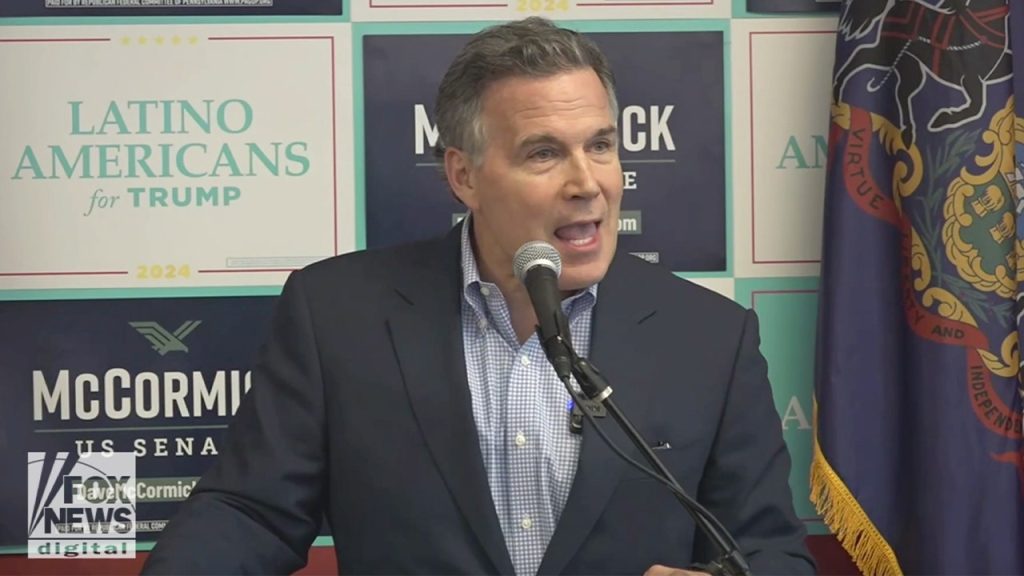The recent shake-up at the top of the ticket in U.S. politics has had a significant impact on down-ballot races, including the U.S. Senate campaign in Pennsylvania. Following President Biden’s suspension of his re-election campaign and endorsement of Vice President Harris to run his office, U.S. Senate candidate Dave McCormick has been quick to contrast his “all of the above energy” goals with Harris’ previous statements about banning fracking. McCormick, who is vying for Sen. Bob Casey’s seat, released an ad highlighting Harris’ liberal comments and Casey’s endorsement of her, questioning her alignment with the needs of Pennsylvanians.
Former President Trump and McCormick, who share a commitment to unleashing American energy, have both seized on Harris’ past comments about banning fracking. Despite Harris and her campaign walking back those comments, Trump and McCormick have continued to use them as a focal point of their campaigns. In response to the criticism, the Harris campaign emphasized the administration’s record on energy, highlighting job creation and the passage of significant climate change legislation. McCormick, however, has criticized the Biden-Harris administration’s energy policies as detrimental to national security and the economy, pointing to the dependency on China for energy products.
In an effort to better understand the challenges faced by small gas and oil operations, McCormick recently toured Bull Run Energy in Warren, Pennsylvania. The co-founders of the operation emphasized the impact of federal regulations on their business and the need for a more tailored approach that considers the size and nature of different operations. McCormick reiterated his commitment to supporting Pennsylvania’s energy sector, advocating for the removal of restrictions on gas and oil projects and the promotion of energy independence and national security. His “Keystone Agenda” includes initiatives to unleash Pennsylvania’s energy potential and fight against additional regulations that could harm the state’s economy.
Despite the criticism and attacks from the Casey campaign, McCormick remains steadfast in his support for pro-energy policies and his opposition to what he perceives as harmful regulations and actions. He contends that Pennsylvania has vast natural gas reserves that are currently inaccessible due to restrictions and regulations, and argues that efforts to eliminate fossil fuels would be detrimental to both Pennsylvanians and the country as a whole. The race between Harris-Casey and McCormick-Trump at the top of the ticket represents a fundamental difference in views on issues such as the economy, border security, and energy policy.
Some Democrats in San Francisco have expressed mixed feelings about Vice President Harris’ potential run for president, reflecting broader divisions within the party. However, the focus in Pennsylvania remains on the upcoming Senate race, where the contrast between Harris-Casey and McCormick-Trump is stark. McCormick’s emphasis on energy policy and support for the state’s natural resources sets him apart from his opponents, highlighting the key differences in approaches to addressing the country’s energy needs. As the campaign continues, the debate around energy policy and the future direction of Pennsylvania’s energy sector will likely remain a central issue for voters in the state.













